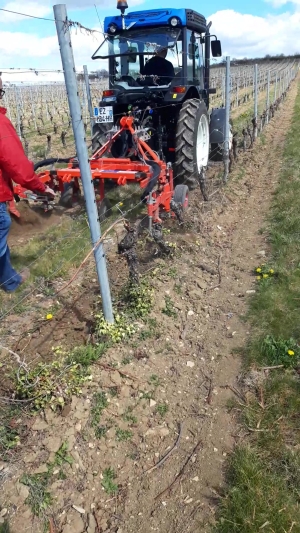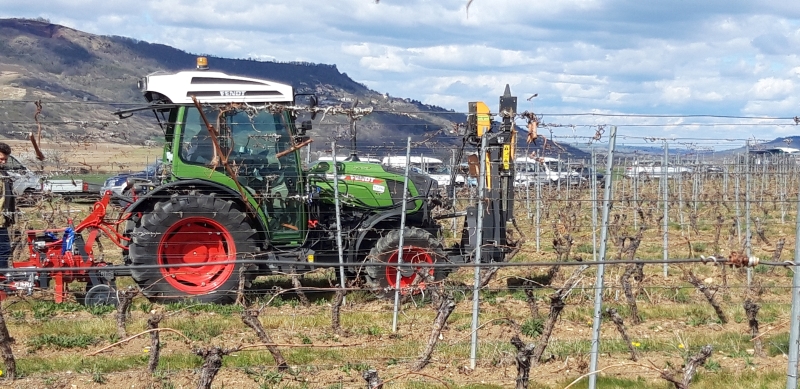CUMA = group of farmers that do collective investment, joint use of machineries and groupe learning processes
The day brought together several dozen of farmers from the Auvergne Rhône-Alpes region. Farmers exchanged in a plenary session on their tillage practices in vineyards. These exchanges were completed by a demonstration of how different tools work and how they can be used.
The exchanges focused on extremely specific aspects of the tillage conditions of the vines according to climatic conditions, slopes, soil types and associated weed vegetation. The discussions also addressed the materials and their performances according to different situations. But the exchanges were not only technical. The use of mechanical weeding machines, as an alternative of chemical treatments, implies changes in the way farms are run, in the time schedule of winegrowers and in the value of the products themselves. This implies that farmers must bear in mind both agronomic and economic consequences of the agro-ecological transition.
Thus, it has become clear that the integration of mechanical tools into the cropping system is not just a simple substitute of chemicals, but must be integrated into a broader strategy involving not only individual and collective practices of farmers, but also their market positioning in a consistent way both with their vision of their own business and social changing demands.
Author: Emmanuel Guisepelli ISARA, France

